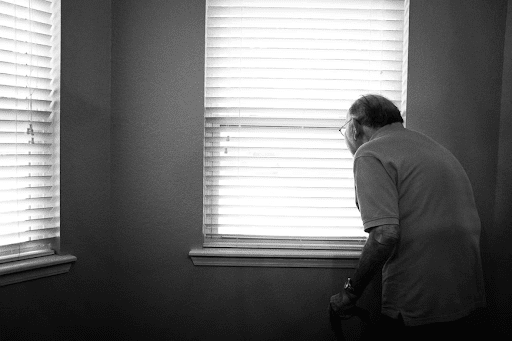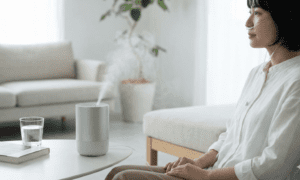Choosing the right medical alert device for your elderly loved one can be a difficult task. There are many factors to consider, such as whether they live alone or not, and if they have any health conditions that may require special equipment. In this blog post, we will discuss some of these considerations and how it affects their choice in medical alert devices.
Type of Medical Alert System
Medical alert systems come in many different styles and types. You can purchase a medical alarm, or you can even get one that comes with other services such as fall detection sensors and automatic medication reminders. Each one of the personal emergency response systems will have its own set of features, advantages, disadvantages, and costs associated with it. This is the first factor to consider when choosing between devices for your elderly loved ones. If they are receptive to change then this may not be an issue at all. However, if someone has been wearing their pendant for years there could be resistance towards switching over to something new.
Ask Them About Their Previous History
Before choosing a medical alarm for your loved one, you should ask them to tell you about their previous history with other devices. What did they like? What didn’t they like? This will give you an idea of what might work best and reduce any confusion when the time comes to make a decision. You should also inquire as to how many times in the past year someone has fallen or experienced symptoms that could be indicative of having an emergency at hand. If this number is high then it may benefit them greatly by purchasing fall detection sensors along with whatever type of device they are looking into buying.
Budget
The price of medical alert systems can vary greatly. It is important to determine how much you are willing to spend so that the company has a better idea of what they can provide for you at this rate. If your loved one needs fall detection sensors then expect to pay more than if all they needed was an emergency button with voice communication features. Most companies offer payment plans in order not to break the bank when it comes time for someone’s safety net to be put into place though, especially when dealing with older patients or those living on fixed incomes, this may be difficult without insurance coverage.
Mobility of the Patient
Mobility is another key factor to take into consideration when determining which device will be best for your loved one. If they are still relatively active and mobile, then perhaps a wearable medical alert button would work well since it can go with them wherever they go during their day-to-day activities. However, if someone has limited mobility or lives in an assisted living home, then something that hooks onto bed rails may be sufficient enough as long as there isn’t any resistance from caretakers where they reside currently.
Monitoring Options
If you want to receive updates in real-time when a medical alert is activated then be sure the company offers that service. Many companies offer live operators who can speak with your loved ones and get them whatever help they need, or send emergency responders if needed. This way you don’t have to worry about someone not being able to reach anyone for an extended period after having pressed their button. Some monitoring options allow users to select family members as contacts so that the operator has permission from whoever initiated contact before sending out first responders which can expedite care immensely since there won’t be unnecessary delays while confirmation takes place on behalf of worried friends and relatives waiting at home for news regarding what happened during such situations.
Quality of the Product
The quality of a medical alert device should also be taken into consideration. You want to know that if something happens then you are investing your money in equipment that will work as intended without having any malfunctions or issues with connectivity. Most devices have backup batteries so power outages shouldn’t pose much of an issue, but it is good to check on this regardless before making a purchase decision one way or another.
Targeted Demographic
At the end of the day, you need to consider who will be using this product and select one that caters to their needs. If your loved ones are larger then perhaps something with an extra-large button would work well since smaller buttons may pose difficulty when trying to activate them in cases where dexterity is poor or non-existent due to age-related illnesses such as arthritis for example. Furthermore, if they have any vision issues then a device with large numbers on it coupled alongside strobe lights can greatly benefit those who suffer from low light conditions while trying to discern what’s going on around them during emergencies.
Additional Features
There are many other factors to take into consideration beyond the ones mentioned above that can be important when selecting a medical alert device for an elderly loved one. Some devices offer fall detection sensors, geofencing services, and remote panic buttons which you may want to take advantage of if they’re available through your preferred company offering these kinds of products. However, it is important not to get distracted by all the bells & whistles as those who need basic assistance from home will do just fine with something more simplistic in nature such as what has already been discussed here thus far throughout this article.
Where to Get One
If you are still having trouble selecting a device then feel free to reach out for assistance. Many customer service representatives are working in this industry who can help guide you through the process so that you end up with something tailored to your loved one’s specific needs which should work well throughout time while getting them the assistance they need when needed most. Don’t be afraid or ashamed of asking questions because these companies have plenty of staff members on hand ready and willing to answer any queries related to their products & services helping customers like yourself figure everything out before making a purchase decision about what will hopefully last for years down the line without breaking apart due to poor construction quality, etc.

These were just some of the factors you should consider before purchasing on behalf of elderly parents or grandparents who need help staying safe while living alone without anyone else around to assist them when needed most!



































